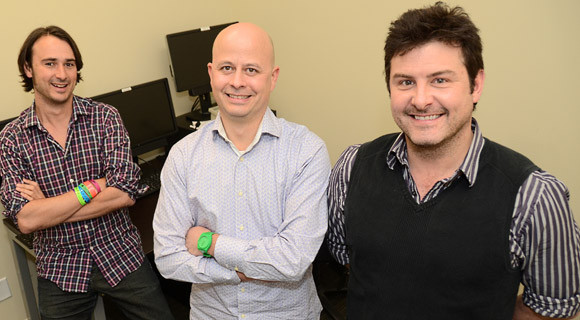
UBC psychology professors Michael Woodworth, Zach Walsh and Stephen Porter.
UBC psychologists host one-day session on detecting severe personality disorder
The public is invited to take a journey into the intriguing and destructive personality of a psychopath with three of Canada’s top psychopathy researchers.
On Monday June 11, UBC professors Stephen Porter, Mike Woodworth and Zach Walsh, directors of the Centre for Advancement of Psychology Science and Law (CAPSL), will host a one-day public presentation offering professionals and community members the opportunity to better recognize and understand psychopathic behaviour in youth and adults, as well as learn some strategies for managing and dealing with psychopathic individuals.
“Because psychopaths are typically narcissistic, manipulative, antisocial and engage in deception at a pathological level, it is very difficult to detect people with this complex emotional disorder,” says Porter.
“Our presentation on psychopathy will address the difficulties of proper assessment, the feasibility of treatment, and the challenges of interacting with psychopathic individuals within the legal system, business settings and domestic contexts.”
Walsh states that topics are very applicable for a wide variety of professionals and community members, including law enforcement, mental health professionals and individuals in the business community.
“Individuals from all walks of life are routinely getting manipulated and duped by psychopaths,” adds Woodworth. “One of our main intentions for putting on this presentation is to provide professionals and community members with the knowledge of how to both identify psychopathy and protect themselves.”
The one-day presentation on psychopathy will take place from 9 a.m. to 4:30 p.m. at UBC’s Okanagan campus. Admission is $200 for the general public and $125 for students. Space is limited. To register contact NatashaKorva@gmail.com.
— 30 —
The post Ever wonder how to spot a psychopath? appeared first on UBC's Okanagan News.
